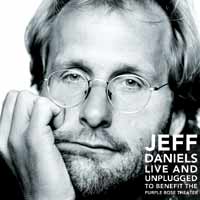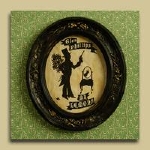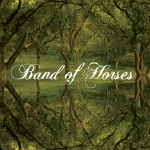|
Monica Hopman |
|
|
This is the story of a music lover who found her way through the tricky world of the music business to prove that hard work and professionalism can actually pay off. Benefiting from the strength of good press herself, Monica Hopman, founder of the popular PR firm called Think Press, has been building proper buzz for a wide variety of talented musicians since 2003. Read about the never-ending responsibilities of a publicist, including keeping the conversation focused on the future for those musicians with a past.
|
|
|
Way Cool: |
How did you get involved in the music industry? What’s your background? |
| |
|
| Monica Hopman: |
I grew up in Connecticut and many of my friends were in bands. I loved being a part of the music scene and found myself working for labels, pitching bands to radio. I eventually ended up in New York and found my niche there. I really enjoyed it. I met great publicists there to learn from. I spent 3 years in New York and that’s kind of how I got into it.
|
| |
|
WC: |
What parts of the Publicist position did you like the most? |
| |
|
| MH: |
I think what drove me to it is that it’s a creative position. It’s a job, but there are creative elements to it. Every artist is different. It’s trying to develop a story, trying to figure out the different aspects, where to place and pitch the different artists to. Every project is a challenge in that sense. In radio, it seems that you keep going back to the same stations over and over again, but I wasn’t really comfortable with that. So, now I’m trying to get people to listen to new music and find something new. |
| |
|
WC: |
How did you go from being the industry and working for other people to starting your own business? |
| |
|
MH: |

|
|
It wasn’t something that I had planned. I wanted to stay at labels, being young and thinking that was the only way to be in the industry. I graduated from college and there weren’t a lot of label jobs out there. It was in 2000 when there were a lot of label mergers and people were losing jobs and there weren’t even entry level jobs available. It was really difficult. A friend of mine told me about a job in Los Angeles with an independent public relations company. I had never really thought of going that route before. I ended up getting the job and worked there for 3 years. After that time, I had grown as much as I could grow. The industry wasn’t very favorable to switching jobs at that time, so I ended up quitting and taking about a month off. During that time, people started contacting me and said, “Hey, if you’re interested in going out on your own, I have people that I’d love to recommend you to.” And that’s pretty much how it started, very grassroots. Ari Hest’s manager was one of the first to contact me… Edie Carey… A friend of mine called about her husband’s band, Puny Human. And then I got a recommendation for Bird York. Those were my first 4 clients.
|
|
| |
|
WC: |
And how long ago was that? |
|
|
MH: |
That was the fall of 2003.
|
|
|
WC: |
|
| |
|
| MH: |
It a pretty steep learning curve. I went from being at a label and having that safety net to being at a PR firm and having that safety net, to being completely on my own. I quickly learned that I wasn’t just a publicist, but also was the spokesperson for my own business. It’s been interesting to learn hands-on. I’ve found my niche and what I like to represent and it took a while to figure that out. I represent a lot of singer / songwriters and bands who are more rock-oriented or have that alt-country twang; it’s all very melodic. A lot of the stuff isn’t too specific to a genre, but it represents and reflects my own taste of music and how that has evolved over the years. It’s been interesting to look back and see how that’s changed… Gone are the days of Guns N’ Roses, AC/DC.
|
| |
|
WC: |
What types of things do you do to promote Think Press? How do you go about getting the word out and finding new clients? |
|
|
MH: |
To be honest, most of it is word-of-mouth referral. A lot of the time, it’s the best way to get new clients. I try to do my best with the clients I have and give them my best effort. Then when they know someone else who needs PR representation, they give them my contact information if they’ve been happy with what I’ve done.
I’ve reached out to artists as well, but I’ve found that it’s not the same as getting a recommendation from a third party or people who have seen the results. Some people also do research on the Web and see the artists I’ve represented and think they are similar and they’ve reached out to me to talk.
|
|
|
WC: |
What are artists looking for when artists come to you for your help?
|
| |
|
| MH: |
It really depends. Some have a CD out; some are just looking to make a name for themselves. Some are baby bands who really just want any kind of press, which is the main purpose of what I’m trying to do. They want to get there name out there, to get reputable publications writing about them. The more established bands may have more specific goals in mind. So, it really depends on what the bands want and I try to get that information from them upfront. There’s a lot you can do with PR. What I’m good at and what I can do might not meet up with the artists’ expectations or where they are in their career. So, I always have a conversation and set up goals from the beginning. Every artist wants something different and has different goals. Some people want huge arenas and playing to millions of people. Some artist are just happy touring and playing to smaller audiences and finding their niche following. It’s interesting for me to see where everyone else is coming from and where their paths are going because it’s all very different. |
| |
|
| WC: |
What are some of the larger promotional undertakings that you’ve been involved with? |
| |
|
MH: |
Artists who are on major labels are always larger undertakings because you are trying to cast a wider net. Someone that I’m helping out with tour press is Jeff Daniels. Everyone wants to talk with him, everyone knows him, and he’s a person who people recognize from film and TV. But not everyone knows he sings. They want to know about the music. Of course, his purpose for being a musician is to raise money for his theater company. But now I have to tackle that everyone knows him, they want to ask about Dumb and Dumber, and I have to make sure that people understand that he’s a credible artist and it’s not just a vanity thing for him.
Another thing that’s difficult is working with people who were known for one thing but are now doing something different, like Glen Phillips (formerly of Toad the Wet Sprocket). Trying to reposition him as a solo artist and get away from the reference of “Toad” is a challenge. Another artist in a similar position is Brian Vander Ark (formerly of Verve Pipe). It’s not that either of them is embarrassed of where they’ve come from or the bands, but they’ve grown. It’s like constantly reliving your high school years over and over again. You grow and you change; you’re not the same person you were. While they have great nostalgia and memory of the time, and they aren’t averse to playing some of the hit songs, they want the music to reflect where they are now. So, I find that’s another challenge.
Then there are artists like Ari Hest, who is trying to break into that scene, to make a name for himself. He doesn’t have a band name to fall back on, and that’s also a challenge.
So everyone offers their own unique challenge. There’s no dead ringer for press that everyone’s got. They all have different issues to work around.
|
|

|
| |
 |
|
|
|
WC: |
And how did Jeff Daniels come to you as a client?
|
|
|
MH: |
He came to me as a referral from Fleming Artists (Glen Phillips, Melissa Ferrick) who were booking him. They thought that maybe word-of-mouth would be enough. But since he was selling his CD only at shows and on his Website, people weren’t really making a connection between the actor and the musician. So I came on board and created a lot of awareness for his theater company. And that just goes to show the power of referral. Had I sought out Jeff Daniels, I don’t think he would have gotten back to me, so that was a great reference to have!
|
|
|
WC: |
How many artists are you working with at one time?
|
|
|
MH: |
It’s forever changing and rotating. Generally I don’t take on too many new clients at one time because they require a lot of attention and more of my time. I’m trying to figure out their background, create the story, do the bios… So it depends, but anywhere between 8 and 10 artists at one time. Some are doing national press, some are tour press. And there are artists like Edie Carey who want spot tour press, for me to really push a certain date in the particular market, but who don’t want full tour press.
|
|
|
WC: |
Are there any up-and-coming artists that you’ve heard about and would like to work with? |
| |
|
MH: |

|
|
I’ve been really conflicted with that. If I find someone, sometimes I really just want to be a fan. There’s a lot of emerging artists who I’ve become a fan of, and I’d really just like to enjoy their music. I feel like working for them might spoil it. It’s like seeing the man behind the curtain, so to speak. But I really love the Cold War Kids. I think they’re amazing. I really love The Shins album. Last year, Band of Horses was one of my favorites. I’ve personally gotten into World Music… African, Latin America, Arabic. And sometimes I like to just listen and be a fan without thinking about work. |
|
|
|
WC: |
When you’re not doing publicity stuff, do you find yourself listening to a lot of music or do you feel like you get enough of that through work? |
| |
|
MH: |
I listen to a lot of music and am lucky that my husband loves music too. That was one of the bonding moments for us. We both came from different backgrounds and experiences, but found a common ground in music. He’s exposed me to different artists and vice versa. We pay for shows and CDs, just like anyone else. If I really like an artist, I’ll go to iTunes and get the music. I feel like if you work in this industry, you can’t just take, take, take. You can’t expect everyone else to pay and to give. I work for a lot of artists who don’t sell a lot of CDs. And I know what it’s like for them to make a sale and it’s fantastic. So, I try to support the music I love, the underground music or the emerging indie artist. I pay for their shows and buy their CDs. |
|
|
|
|
|
|
|
|

|
|
|
What's the worst job you've ever had?
|
|
Life guard. |
| |
|
|
What's your favorite movie quote or song lyric?
|
|
The one my husband and I quote all the time is very subtle from Austin Powers. “You’re stock is rising #2.” I think it’s so funny how it’s so subtle. And it’s one of those things where someone says something quick witted and you say, “Ah, your stock is rising!” |
| |
|
|
Who would you want to star in the movie of your life?
|
|
People say I look like Julia Stiles, but I don’t see it. Or they say I look like Mary Stuart Masterson. But, to be honest with you, I’d love for Angelina Jolie to star in it. |
| |
|
|
What's your favorite TV theme song?
|
|
There’s this casino out here called Morongo, and they have the funniest song. It’s like an 80s / 60s dance thing where they keep saying their name, “Morongo!” and I can’t get it out of my head once I hear the commercial. I’ll just sporadically say “Morongo!” Other than that, I watch “The Deadliest Catch” and love that they resurrected that Bon Jovi song, ‘Dead or Alive.’ |
| |
|
|
If you were a superhero, what would your name be?
|
|
Fantastically Fabulous Woman. |
| |
|
|
What do you want to be when you grow up?
|
|
A tree. |
| |
|
|
Finally, why are there so many songs about rainbows?
|
|
Because they are very inspiring. |
|
|
|
|
|
To find out more information about Monica Hopman, visit her website at www.thinkpress.net.
|
|
|

